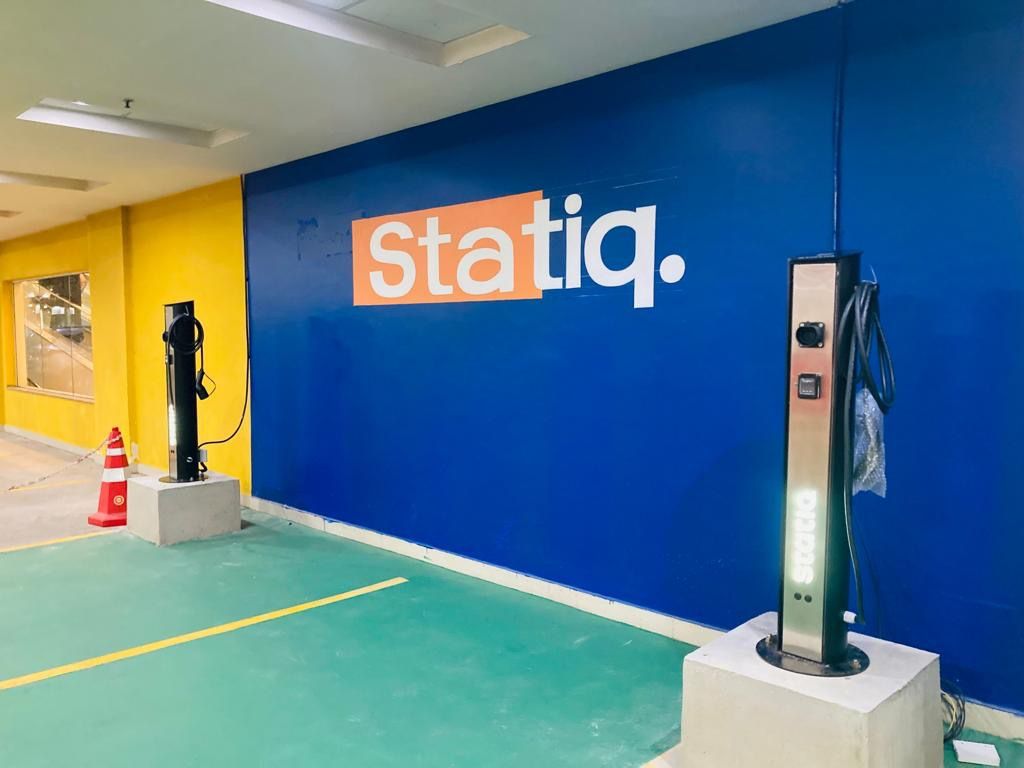
Noida International Airport Limited (NIAL) has taken a significant step towards sustainability by partnering with Statiq, a leading electric vehicle (EV) charging infrastructure provider, to install EV charging stations at Noida International Airport. This initiative is aimed at supporting India’s growing demand for green energy solutions and aligns with the airport’s mission to minimize its carbon footprint.
As EV adoption grows, the need for comprehensive charging infrastructure has become critical. Airports, which are hubs for large-scale transportation, can play a key role in supporting the transition to electric vehicles. NIAL’s decision to work with Statiq is a forward-thinking move, given the projected increase in electric vehicles, not only for private transportation but also for industrial and ground-support operations.

Charging Infrastructure Development
Under this partnership, Statiq will be responsible for setting up and maintaining the EV charging infrastructure at Noida International Airport, particularly the airside section of the airport. This includes the installation of charging stations that will serve both airport-operated electric vehicles as well as the vehicles of various concessionaires.

Statiq will deploy chargers of varying capacities to meet diverse needs. Smaller vehicles, such as those used for transporting passengers and light cargo, will be equipped with 7.4 kW AC chargers, which are ideal for overnight or long-term parking situations. In contrast, heavy-duty airport support vehicles, like those used for baggage handling and cargo transportation, will benefit from more powerful 120 kW and 240 kW DC fast chargers. These high-powered chargers will be strategically placed to ensure quick and efficient charging, allowing vehicles to minimize downtime between operations.
Environmental and Economic Impact
The initiative aligns with the airport’s broader sustainability goals, which include lowering emissions and embracing clean energy. By reducing reliance on traditional fuel-powered vehicles, the airport will not only cut down on operational costs but also significantly reduce carbon emissions. Electric vehicles typically have lower maintenance costs and reduced fuel expenses, making them a long-term, economically viable solution for airport operations.

This move also helps meet government policies and global environmental standards related to energy conservation and emission control. Airports are typically heavy energy consumers, and integrating electric vehicles into their fleets helps achieve greater energy efficiency. In addition, the availability of EV charging stations at airports provides convenience for travelers who use electric vehicles, encouraging more people to adopt green transportation options.
Future Outlook
NIAL and Statiq’s collaboration represents a step forward in India’s broader transition toward sustainable transportation. As more airports and industries adopt electric vehicles, partnerships like this will become increasingly essential. In the long term, the EV infrastructure at Noida International Airport could serve as a model for other airports in India and beyond, showcasing how transportation hubs can lead the way in reducing environmental impacts.




